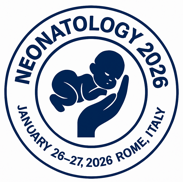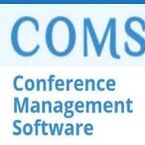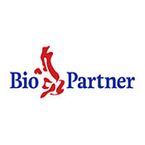Welcome Message
Dear Participants,
It is with great pleasure that we welcome you to the 39th International Conference on Neonatology and Perinatology, taking place on January 26–27, 2026, in the beautiful city of Rome, Italy.
This conference serves as a dynamic platform for leading experts, researchers, clinicians, and healthcare professionals from around the world to exchange knowledge, present cutting-edge research, and explore the latest innovations in neonatal and perinatal care. Your participation plays a vital role in shaping the future of newborn and maternal health.
We are confident that the sessions, discussions, and networking opportunities will offer valuable insights and lasting collaborations. Thank you for joining us in this collective effort to advance the field and improve the lives of the youngest and most vulnerable patients.
We look forward to a successful and enriching experience together.
Warm regards,
Organizing Committee
39th International Conference on Neonatology and Perinatology
Rome, Italy | January 26–27, 2026
About Conference
The 39th International Conference on Neonatology and Perinatology will be held on January 26–27, 2026, in the historic city of Rome, Italy. This prestigious event is dedicated to advancing the science and clinical care in the fields of neonatology, perinatology, and maternal-fetal medicine.
The conference will bring together an international community of neonatologists, pediatricians, perinatologists, obstetricians, nurses, researchers, and allied healthcare professionals to share their latest research, innovative practices, and clinical experiences. Through keynote presentations, interactive sessions, panel discussions, and poster presentations, the event aims to foster collaboration and provide practical solutions to the challenges faced in neonatal and perinatal care.
Key topics will include neonatal intensive care, premature birth complications, perinatal infections, congenital disorders, neurodevelopment, maternal health, and advancements in neonatal technologies. The conference also highlights the importance of multidisciplinary care and early intervention strategies for improving short- and long-term outcomes for newborns and mothers.
Set against the cultural and historical backdrop of Rome, this conference offers not only a valuable academic experience but also an opportunity for networking and professional development.
Join us in Rome to be a part of this impactful global dialogue that strives to enhance care for the most delicate lives.
The 39th International Conference on Neonatology and Perinatology offers an outstanding platform to gain the latest insights, discover groundbreaking research, and connect with leading voices in neonatal and perinatal healthcare. This global gathering aims to foster knowledge exchange, promote innovation, and encourage collaboration among professionals who are passionate about advancing care for newborns and mothers.
Key Reasons to Attend:
-
Engage with international experts in neonatology and perinatology
-
Learn about cutting-edge advances in neonatal intensive care and fetal medicine
-
Participate in interactive sessions, panel discussions, and case studies
-
Present your research and receive valuable feedback from peers
-
Explore new clinical strategies for managing high-risk pregnancies and preterm births
-
Stay up to date with global trends in maternal and newborn health
-
Network with healthcare leaders, researchers, and industry professionals
-
Gain continuing education and professional development credits
-
Discover innovative technologies, products, and services in the exhibition area
-
Experience the vibrant culture and history of Rome, Italy
This conference is designed for a diverse group of professionals involved in the care of mothers and newborns, including:
-
Neonatologists
-
Pediatricians
-
Perinatologists
-
Obstetricians
-
Maternal-Fetal Medicine Specialists
-
Pediatric Surgeons
-
Pediatric Nurses
-
Neonatal Intensive Care Unit (NICU) Nurses
-
Midwives
-
Pediatric Neurologists
-
Pediatric Cardiologists
-
Neonatal Respiratory Therapists
-
Nutritionists specialized in Neonatology
-
Clinical Researchers
-
Biomedical Scientists
-
Public Health Professionals
-
Medical Students
-
Postdoctoral Fellows
-
Pediatric Residents
-
Healthcare Policy Makers
-
Hospital Administrators
-
Pharmacologists
-
Medical Device Manufacturers
-
Healthcare Technology Innovators
-
Geneticists
-
Immunologists
-
Social Workers in Perinatal Care
-
Psychologists focusing on Maternal Mental Health
-
Early Intervention Specialists
-
Lactation Consultants
-
Emergency Medicine Physicians
-
Infectious Disease Specialists
-
Pediatric Endocrinologists
-
Epidemiologists
-
NGOs and Global Health Advocates
Market Analysis Report
The global neonatal care market was valued at approximately USD 2.97 billion and has shown consistent growth due to increasing preterm birth rates, improved healthcare access, and rising awareness of neonatal health. A major contributing factor has been the expanded use of neonatal intensive care equipment, including incubators, respiratory support systems, phototherapy units, and patient monitoring devices. The demand has particularly surged in low- and middle-income countries, where investments in healthcare infrastructure have increased significantly.
According to recent market reports, the neonatal intensive care market is projected to grow at a compound annual growth rate (CAGR) of 6.1%, with the market value expected to reach around USD 6.27 billion in the forecast period. Growth is driven by advancements in neonatal monitoring technologies, the introduction of non-invasive diagnostic tools, and increased funding for neonatal healthcare services. The Asia-Pacific region is expected to witness the fastest growth due to its high birth rate and growing investments in maternal and child health programs.
The neonatal equipment segment alone is estimated to contribute a large share of the total market, with neonatal ventilators, incubators, and monitoring systems being the most in-demand categories. Industry leaders are focusing on integrating smart technologies, such as wireless monitoring and artificial intelligence, to improve early detection and real-time intervention. The growing emphasis on improving neonatal outcomes and reducing infant mortality continues to be a key market driver globally.
Leading Associations and Societies in Neonatology and Perinatology
-
American Academy of Pediatrics (AAP)
-
Section on Neonatal-Perinatal Medicine (SONPM)
-
European Society for Paediatric Research (ESPR)
-
American College of Obstetricians and Gynecologists (ACOG)
-
Union of European Neonatal & Perinatal Societies (UENPS)
-
Perinatal Research Society (PRS)
-
International Neonatology Association (INA)
-
World Association of Perinatal Medicine (WAPM)
-
Canadian Paediatric Society (CPS)
-
Australian and New Zealand Neonatal Network (ANZNN)
-
British Association of Perinatal Medicine (BAPM)
-
Neonatal Nurses Association (NNA)
-
National Association of Neonatal Nurses (NANN)
-
European Association of Perinatal Medicine (EAPM)
-
International Society for Neonatal Screening (ISNS)
-
Society for Maternal-Fetal Medicine (SMFM)
-
Academy of Neonatal Nursing (ANN)
-
International Society for Research in Human Milk and Lactation (ISRHML)
-
Fetal Medicine Foundation (FMF)
-
Global Alliance to Prevent Prematurity and Stillbirth (GAPPS)
Important Deadlines
-
Abstract Submission Deadline: December 10, 2025
-
Early Bird Registration Deadline: October 30, 2025
-
Regular Registration Closes: January 15, 2026
-
On-spot Registration: January 26, 2026
We encourage all participants to submit their abstracts before the deadline and complete their registration in advance to secure their participation.
Need Assistance?
For any queries related to registration, abstract submission, accommodation, or invitation letters for visa purposes, feel free to contact us:
Email: contact@speakermeeting.com
Our support team is here to assist you promptly with any questions or special requests.
Past Conference Report
Neonatology 2024
It is an Honor to welcome all Pediatricians, Neonatologists, Researchers, and Students from across the world to the amazing privilege of attending our upcoming “38th International Conference on Neonatology and Perinatology” which will be held on December 12-13, 2024 in Rome, Italy.
This new and exciting 2024 conference in Rome features outstanding internationally known Neonatologists and Perinatologist from premier medical universities, hospitals and other specialties from all over the globe. The conference format will feature new interactive workshop sessions for both neonatal, perinatology and pediatric topics which will discuss new updates and management, as well as State of the Art talks on a variety of neonatal and pediatric diseases in multiple subspecialties.
The themes of the conference will include the following topics:
Neonatology, Covid_19 Obstetric and Neonatal, Perinatology, Pediatrics, Neonatal Intensive Care Unit (NICU), Congenital Malformations & Birth Complications, Neonatal Heart Diseases and Problems, Neonatal and Fetal Nutrition, Neonatal Genetics, Neonatal Research.This meeting will allow the attendees to acquire these new updates and share their experiences with well-recognized speakers globally.We look forward to seeing you at this meeting and we are sure you will find it an outstanding educational opportunities too.
Neonatology 2024 brings together renowned and internationally renowned neonatal specialists, obstetricians, gynecologists, pediatricians, academics and researchers. Representatives include major medical schools, hospitals and the healthcare/pharmaceutical industry around the world. A variety of topics are discussed at the conference, such as neonatology, perinatal and pediatrics. Conference attendees will be delighted to see a variety of interactive workshops, keynotes, speakers and poster presentations and, above all, exhibitions hosted by major healthcare and pharmaceutical industries. The conference also has a Young Researchers forum where aspiring researchers can give oral presentations.
Past Reports Gallery
























